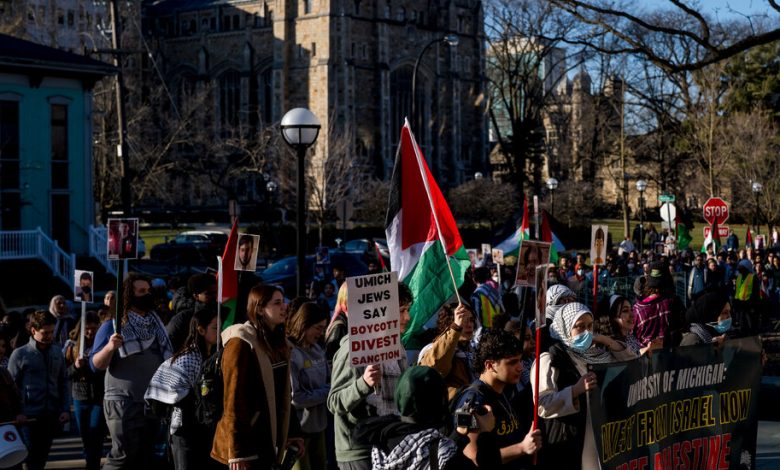What to Know About the Turmoil at Colleges Over the Israel-Hamas War

As the Israel-Hamas war has escalated, many universities have been caught in an often vitriolic debate over how to handle pro-Palestinian student protests.
Many Jewish students and alumni have been alarmed, saying that the demonstrations can veer into antisemitism. Supporters of academic freedom and students and faculty critical of Israel’s policy toward Palestinians have responded that the real goal is to suppress their political views.
The Department of Education’s Office for Civil Rights has opened dozens of investigations into allegations of antisemitism at colleges and K-12 schools, a dramatic increase from previous years. The Republican-led House Committee on Education and the Workforce has also started investigations into a half-dozen schools and has held hearings, one of which helped lead to the resignations of the presidents of Harvard and the University of Pennsylvania.
On Wednesday, the committee will hear testimony from the president and board members of another school engulfed in protests: Columbia.
Here’s what to know about how these issues are playing out on campuses.
How the conflict began.
The weekend after the Oct. 7 Hamas attack in Israel, a student coalition at Harvard, calling itself the Harvard Palestine Solidarity Groups, issued a public letter holding “the Israeli regime entirely responsible for all the unfolding violence.”
Despite an outcry over the letter from alumni and donors, Harvard’s new president, Claudine Gay, did not initially forcefully condemn the Hamas attack, leading to complaints that the university was letting the students’ letter fill the vacuum and appear to represent the university’s view.



